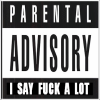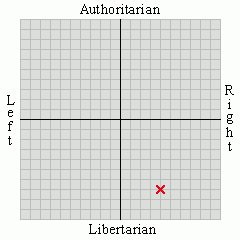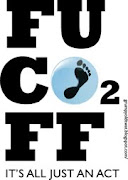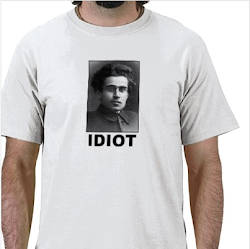Britain's police watchdog said on Tuesday it found no evidence that Mark Duggan, whose death at the hands of police last week was the catalyst for unprecedented riots in London, had fired a gun at officers.Does it mean the police are guilty of starting this whole thing by virtually executing Duggan? Not necessarily. I'm going to assume, fairly I think, that the police expected Duggan to be armed. The reason I think it's a fair assumption is that you don't send a bunch of cops tooled up with MP5 semi-autos to arrest someone you expect to be unarmed, so it's reasonable to think that the police thought that there was at least a chance and maybe even a strong possibility that Duggan would have a gun. And as it turns out they were right because he was armed, reportedly with a Bruni blank firing pistol that had been converted to fire live ammunition.* Others may claim that the police planted it but that seems pretty unlikely - it's not the kind of thing police just happen to have handy and they'd have only got it in advance if the whole plan was to kill Duggan rather than arrest him, which is simply beyond even tinfoil hattery. This isn't a Dr David Kelly type here, just a guy who's supposed to have dealt drugs in a particular part of London. I'm not saying nobody wanted him dead but was he important enough for a blatantly illegal state operation to kill him? Of course not, and that being so there's no plausible reason for the police to have brought along a criminal's weapon to plant on the body.
"At this stage there is no evidence that the handgun found at the scene was fired during the incident," said the Independent Police Complaints Commission (IPCC) in an update on last Thursday's fatal shooting in Tottenham, north London.
[...]
he IPCC said that two shots were fired by one firearms officer, and a post-mortem examination revealed that Duggan received a gunshot wound to the chest, which killed him, as well as a second gunshot wound to his right bicep.
A bullet was found lodged in one of the police officers' radios and a non-police issue handgun was also recovered from the scene.
Ballistics tests have now revealed that the bullet lodged in the radio was police issue, "and, whilst it is still subject to DNA analysis, it is consistent with having been fired from" a Heckler and Koch MP5 gun used by the police.
In any case that's by the by. The police who were sent to arrest Duggan were clearly expecting him to be armed and dangerous, and that's the important thing. In that situation Duggan need only have put his hand out of sight abruptly for one of the cops to think he was going for a gun, and if you were the cop and that thought was in your head would you wait or shoot? Are you still thinking? Well, you could be dead now. So with that in mind, and again this is an assumption on my part, police are probably trained to shoot if - if - something like that happens when confronting a suspect who is believed to be armed.
Now I stressed 'if' back there because as yet we don't know what happened. Maybe Duggan did something to make the cop think he was going for a gun, maybe he even was going for his gun, and maybe there was a cop who for some reason - maybe a bad reason, maybe a perfectly understandable one that could happen to anybody - thought he saw something that wasn't what he thought he saw, and that made him pull the trigger. We just don't know at this stage, and I'm not going to second guess either the police or the late Mark Duggan. Everyone is still innocent until proven guilty. Yes, everyone, even alleged drug dealers and even the police when they've just shot someone dead. Again, we must wait and see.
That said they're not off the hook either. Inevitably the police have some explaining to do whenever they shoot someone dead, and since that's the kind of thing inquests are and since the one into Duggan's death has only just opened yesterday I'm happy to wait and see what comes out of that. But top of the list are a couple of questions the police could answer right away. First, and most important, they could tell us exactly how it was that the initial media reports carried a story of a firefight in which one lucky plod took a round in the radio when we now know that Duggan's gun was not fired. And secondly, once that incorrect story did emerge how much effort did the Met put into correcting the media and getting the point across that it was early days and much was still unknown.
The reason I ask is because right now it makes the Met look like they lied. It makes people think of the Jean-Charles de Menezes shooting and the reports that he jumped the barriers at Stockwell Tube station and that the police challenged him, neither of which actually happened. And while at this point I always trot out Hanlon's Razor and my preference for believing cock up and incompetence over conspiracy and intrigue, in this kind of situation there's not actually much difference in he practical outcome. The rioters won't care whether the police actually set out to deceive, which would have been a phenomenally stupid decision if they did, or simply failed to correct the media's initial stories with the important qualification: "We're not sure yet." All they will know is that Duggan was supposed to have shot at the police who killed him and now it turns out that he never got a shot off at all.
And that's probably not good news for Londoners. If Duggan's death was enough to go heaving bricks and burning buildings for** then any impression of dishonesty on the part of the Metropolitan police, even if it turns out to have been a mistake beyond their control and that they'd released dozens of PRs correcting it, is only going to pour petrol on the flames.
* Have a look at the website. Convincing looking things, eh? If, and again I stress 'if', a copper caught sight of one of those in someone's hand I could understand him shooting if it wasn't dropped pretty sharpish.
** It should go without saying that I don't think even a wrongful police shooting - and we don't yet know if this was one - justifies smashing up and stealing the property of innocent third parties.


















